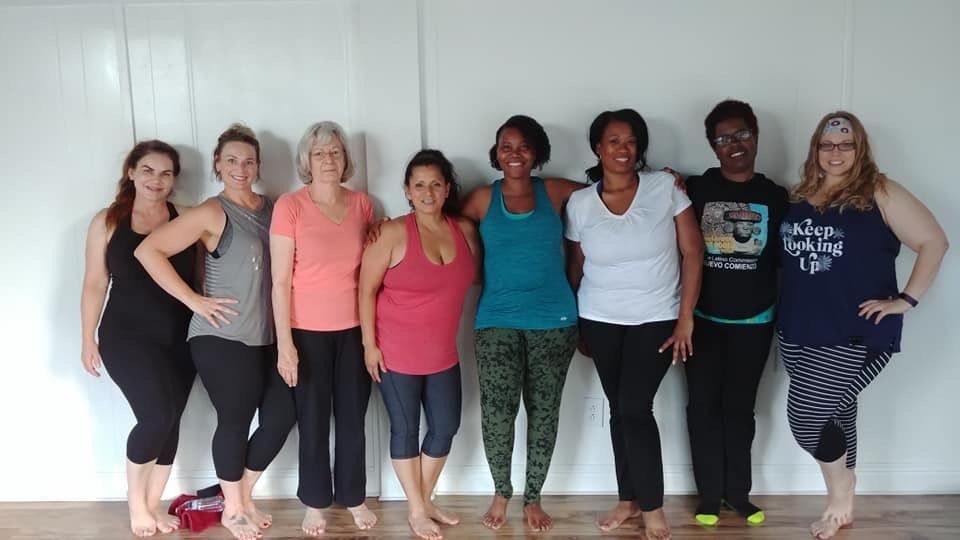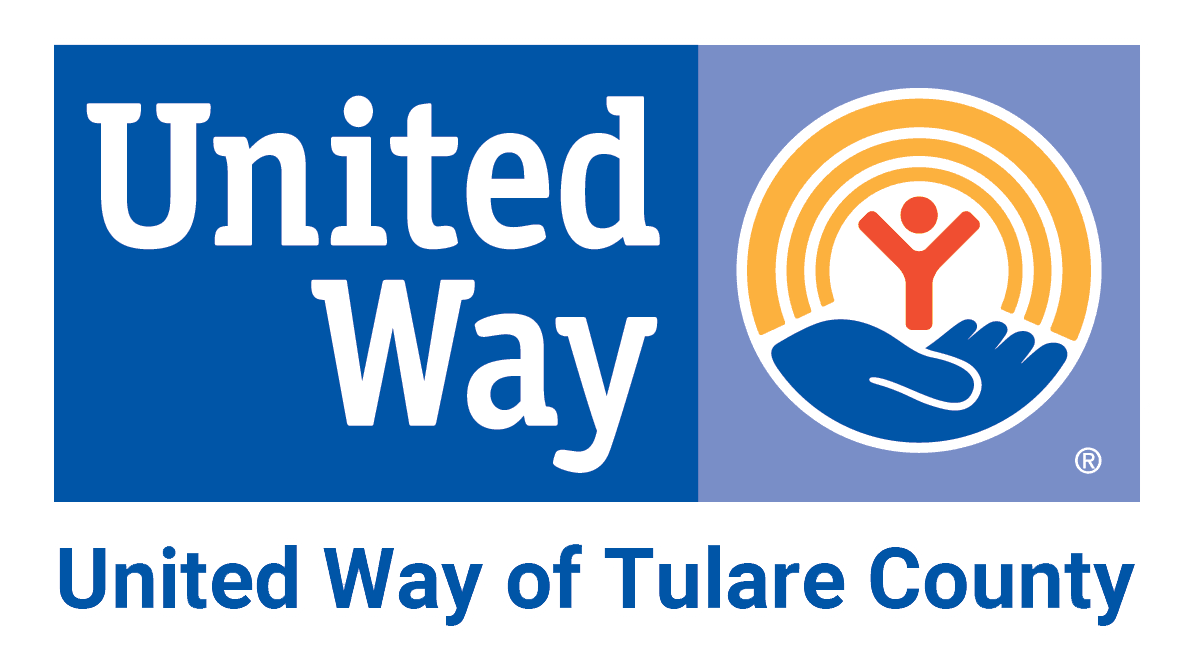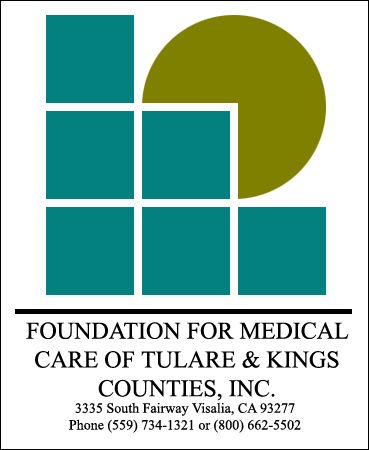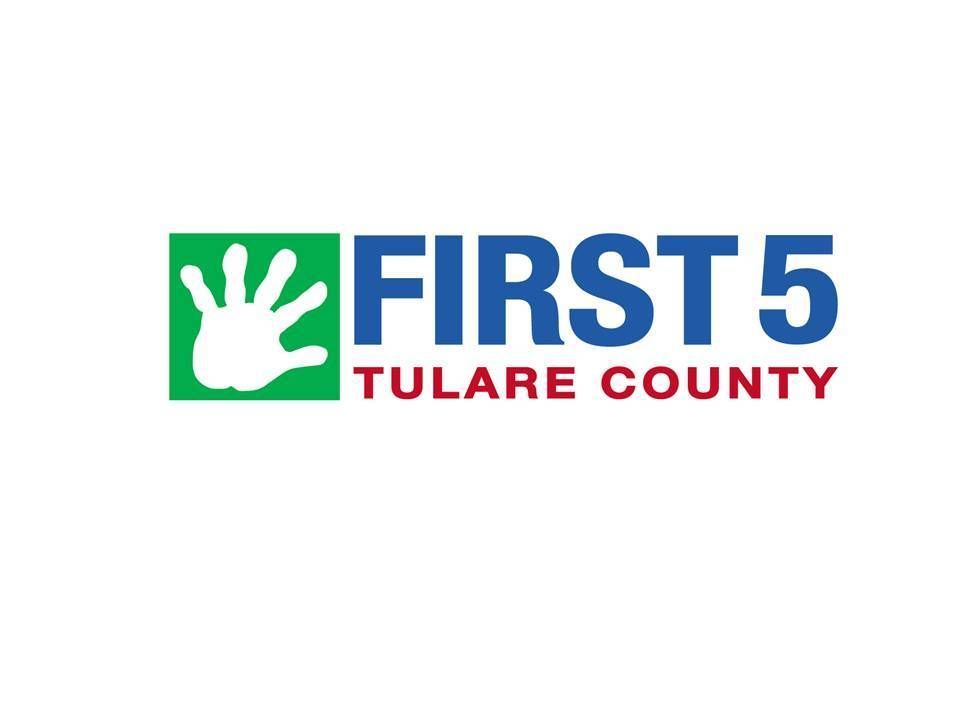
Trauma leaves an imprint on the mind, brain, and body. Traditional talk therapy can be an important component of healing for survivors of violence, but incorporating body-based therapies in the course of treatment increases effectiveness by targeting the body’s physical responses to trauma. Recognizing this, Family Services began incorporating trauma-informed yoga as part of a more comprehensive approach to treating trauma in survivors of sexual assault.
Family Services’ Rape Crisis Center partners with Kelly Baker, LMFT, founder of Onyx Trauma Healing Center, to bring trauma-informed yoga classes to Visalia. The healing modality of trauma-informed yoga creates a safe, empowering environment for those who have experienced trauma to learn the basics at a slow, gentle pace. It includes breathing techniques, movement, grounding techniques, meditation, and trauma psychoeducation. The instructor's role is to support the survivor with increasing their self-agency, body awareness, and healthy trauma responses.
"Trauma healing begins with the body because trauma lives in our physical body," said Kelly.
When an individual is sexually assaulted, their body is physically violated by someone else. It can leave them feeling like their body and the world around them aren't safe places anymore, and the nervous system can be pushed beyond its capacity to cope. Survivors who are struggling with symptoms from trauma can use trauma-informed yoga to understand and recognize these physical responses and begin to reconnect with their body.
When Kelly invites the group to begin moving their body, she provides a few options, starting with each pose's most basic form.
"It's more about connecting to your body than advancing into new poses as you would in traditional yoga," Kelly explained.
The room set-up is trauma-sensitive. The lights remain on, mats spread out, and everyone can see the exit. Kelly begins the class by introducing herself. She explains what students can expect, followed by a quick check-in to see how everyone is feeling. After sharing, they do a grounding exercise, journaling prompt, or brief psychoeducation session. These practices help survivors understand the trauma they have lived through while learning how to regulate their thoughts and stay present in the moment.
Kelly encourages students to choose “in the spirit of agency and self-care” to do only the specific movements that feel right for them. Kelly does her best to create an environment where survivors feel safe to move through what they need to at their own pace. She uses invitational language to encourage survivors to make their own choices. She reminds her students, "Your practice is your own practice."
Generally, trauma-informed yoga instructors exclude movements that may make a survivor feel unsafe or triggered. They make verbal suggestions instead of touching. Kelly will only intervene if someone is at risk of hurting themselves. She will ask if they need help or suggest they try something else.
The class has been a source of empowerment for many students. Those who regularly attend have developed a sense of community among other survivors. For Cristel, one of Kelly's first students, the experience has helped her learn skills to cope with her emotions and set boundaries. "This has become my safe space," she shared. Feeling supported by other survivors also helped her heal. "It was really important for my healing journey to feel like I wasn't alone, to see people who looked like me, and had been through similar things. It was an empowering experience."
Adriana, who has been attending for almost a year in combination with going to counseling, has also felt a connection of the group. She said, "I was pleasantly surprised by how accepting everyone was. It became a safe space to talk about how I was feeling. I hope this service continues because it's a space I feel supported."
Many participants have used what they have learned in their daily lives. For Adriana, she’s gained more self-compassion. “I am aware of how I feel and why I feel that way." This is also true for Lisa who joined last October. She shared, "It gave me an outlet, a time to focus on me. I always look forward to and can't wait for the next session."
These clients are just a few of those who have benefitted from the classes within the last year. Family Services is thankful to the California Office of Emergency Services for allowing us to offer this innovative alternative therapy modality and to Kelly Baker for her partnership and expertise.
Trauma-informed yoga classes are now available for survivors of sexual assault every Tuesday at 6:00 p.m. via Zoom. If you or someone you know can benefit from this service, please sign up for a future class. Participants must be 16 years or older. For more information, please call the Rape Crisis Center at 559-732-7371.



